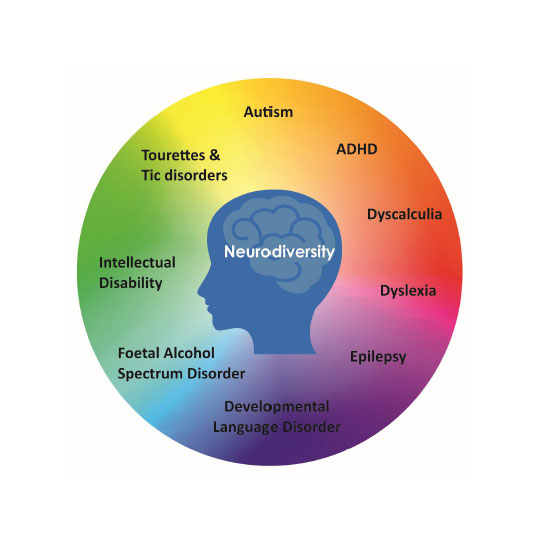A presentation from Councillor Ross Henley and Julie Jordan, Strategic HR Lead, Somerset West and Taunton Council
What is neurodiversity?
Neurodiversity refers to the different ways the brain can work and interpret information. It highlights that people naturally think about things differently. We have different interests and motivations, and are naturally better at some things and poorer at others.
Most people are neurotypical, meaning that the brain functions and processes information in the way society expects.
However it is estimated that around one in seven people (more than 15 per cent of people in the UK) are neurodivergent, meaning that the brain functions, learns and processes information differently.
Neurodiversity: the facts
Neurodivergence includes a range of conditions including Attention Deficit Disorders, Autism, Dyslexia and Dyspraxia.
National Autistic Society report at least 700,000 autistic adults in UK of which only 15% are in employment.
According to the British Dyslexia Association, the number of individuals with dyslexia in the UK is around 10%, with 4% of population at the severe end of the dyslexia continuum.
Why is neurodiversity important to SWaT?
As part of our commitment to building a diverse and inclusive workplace for our staff, customers and partners who work with the Council, there is a need to focus on neurodiversity and to support individuals who have specific needs.
We want to raise awareness amongst staff to be able to recognise and support colleagues, customers, members and partners, making our working community more inclusive.
Neurodiversity: our approach
We have registered as a disability committed employer and aim through a focussed action plan to achieve accreditation as a disability confident employer
We are setting up a working group consisting of staff who either have Neurodivergent challenges themselves or support friends and family who do. This group will help us shape our plans and test some of the training, guidance and management toolkits before they are rolled out.
2020 Action Plan includes:
- Using best practice from autism charities and neurodiversity partnerships, draft guidance for managers on supporting neurodivergent employees in the workplace
- Develop risk assessment process, so reasonable adjustments can be made
- Examine recruitment practices to ensure inclusivity
- Coaching for internal candidates with special needs who are applying for a different role or a promotion
- Set up learning and awareness events and use communication channels including social media
- Review induction, learning & development packages to incorporate different leaning styles
Download the original presentation on neurodiversity (pdf, 478KB)


